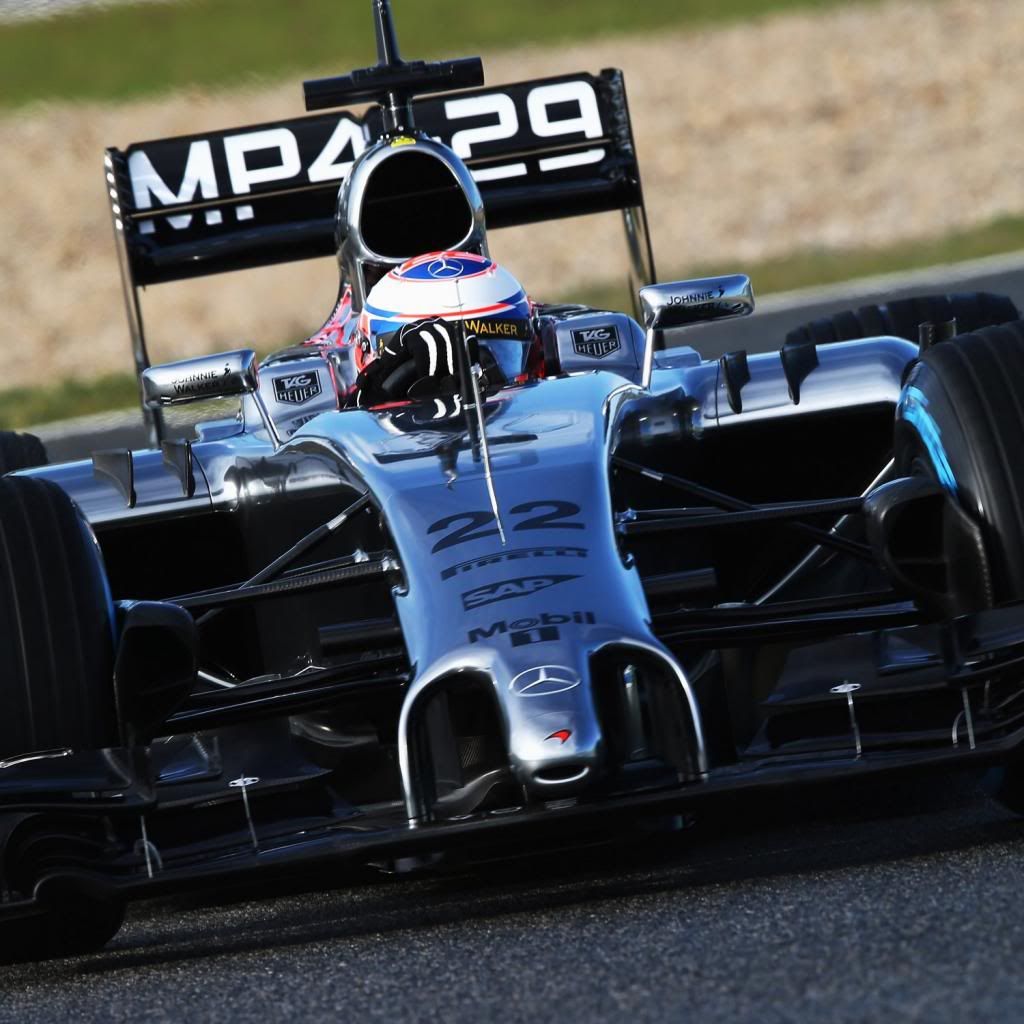Bad tyres (even by rules) = bad racing.
Another "Pirellized" race, who will be the second (after 2012) world champion taxi driver ?
- Login or Register
No account yet? Sign up

Ironically you can indeed see the ages.strad wrote:You read the posts and you can just about graph the age of the posters...IF the modern F1 fan rules the roost for much longer, F1 is dead.
Fair enough, your entitled to disagree.bhallg2k wrote:I disagree.
But, more importantly, where did this idea come from that the only alternative to the Pirelli soft-boiled eggs is tires with race-length durability? That rule was so despised it only lasted a year.
There's a middle ground, and DRS, mandated compound usage, and mayfly tires are nowhere near it; they reside on the short-attention span side of the spectrum. (And they're all just non-answers to a question that's a bit bigger than the scope of this thread.)
nah that doesn't make any sense im afraid.....richard_leeds wrote:With everlasting tyres, no refuelling and modern reliability there would be no need for pits stops and no need to worry about breaking the car.
Once drivers had got around the chaos of the first few laps they would simply race in formation, fastest at the front, slowest at the back. Admittedly the inexperienced drivers wouldn't be able to keep the consistency, but the guys at the front would do that.
In the Bridgestone era we could turn off the TV after the final pitstop and know the result. So if Pirelli tyres became everlasting with a ban on refuelling the entire race would be like that final stint in the Bridgetsone era.
"Modern reliability", or at least, the general recognition of it, arrived with two things:fiohaa wrote:The only reason modern reliability is around is because of the need to make engines/gearboxes last, so they cannot push the boundaries like they used to - this doesn't have any bearing on the racing.
- regarding modern reliability, i didn't mention those things because they were so obvious it wasn't worth pointing out - those things would have happened anyway, just because of advances in technology. I doubt quality control was Ferrari's idea alone, feel free to give a source though. The kind of bulletproof Reliability we see today for the most part has been forced due to the requirement for long life engines, in the past you could afford to push the boundaries and maybe the occasional blow up in the pursuit of more revs and power.kilcoo316 wrote:"Modern reliability", or at least, the general recognition of it, arrived with two things:fiohaa wrote:The only reason modern reliability is around is because of the need to make engines/gearboxes last, so they cannot push the boundaries like they used to - this doesn't have any bearing on the racing.
1. Increasingly accurate CAE software, allowing the design engineers to reduce the number of unknowns in component design, decreasing weaknesses.
2. The large increase in quality control by Ferrari in 2000, since replicated by all other teams.
The rest of your post is a load of tripe and barely worthy of comment.
If on the Pirelli tyres, a driver on a X stop strategy could not chase down and beat a man on a X-1 stop strategy, could you please explain what happened in Canada last year?
If on the Pirelli tyres, a driver on an X-1 stop strategy is unable to hold off a driver on an X stop strategy without their tyres going off, could you please explain what happened in Brazil last year?
and that they would completely undermine your "argument"?fiohaa wrote:- regarding modern reliability, i didn't mention those things because they were so obvious it wasn't worth pointing out
Seriously?fiohaa wrote: - regarding Canada, well lets look at what happened in Canada. Perez starting outside the top 10, on a track where overtaking is easy with DRS, starts on the harder compound and manages to leapfrog some front runners, because they are all running around on worn out tyres, thinking they could hold on. Redbull realised they couldn't and decided to pit, while others tried to plod on.
How is that tactical? How was that a battle of tactics?
Do you not realise that it is impossible for everyone to make the right strategy calls? Only one driver can win the race - even then, their strategy might not be perfect.fiohaa wrote: You must see the difference between that, and teams purposefully starting on a 2 stop or a 3 stop strategy, and purposefully playing that strategy out,
The brakes.Cam wrote:What are the current core ingredients we can't do without?
Therein lies the crux of what I think is wrong. But, that's neither here nor there, and those particular threads get ugly pretty fast.kilcoo316 wrote:[...]
But if there isn't a substantial difference in mechanical grip (i.e. from the tyres), then two otherwise similar cars will not be involved in any overtaking.
Yes - maybe a new thread should be started on where F1 should go from here - open the scope out beyond tyres.


I wonder if this will help bring the Pirelli-preservation knowledge that Sauber has had in recent years, and indeed if it was motivated by such a notion.Sauber head of vehicle dynamics Pierre Wache is set to join Red Bull. Wache is still officially a Sauber employee, but a spokesperson confirmed to AUTOSPORT that he “will leave the company in the near future”. Former Red Bull man Ben Waterhouse, who moved to Sauber three years ago, has held Wache’s old Sauber role since January 1.